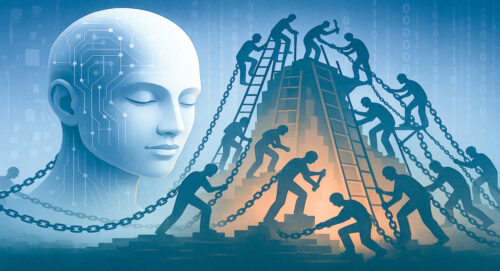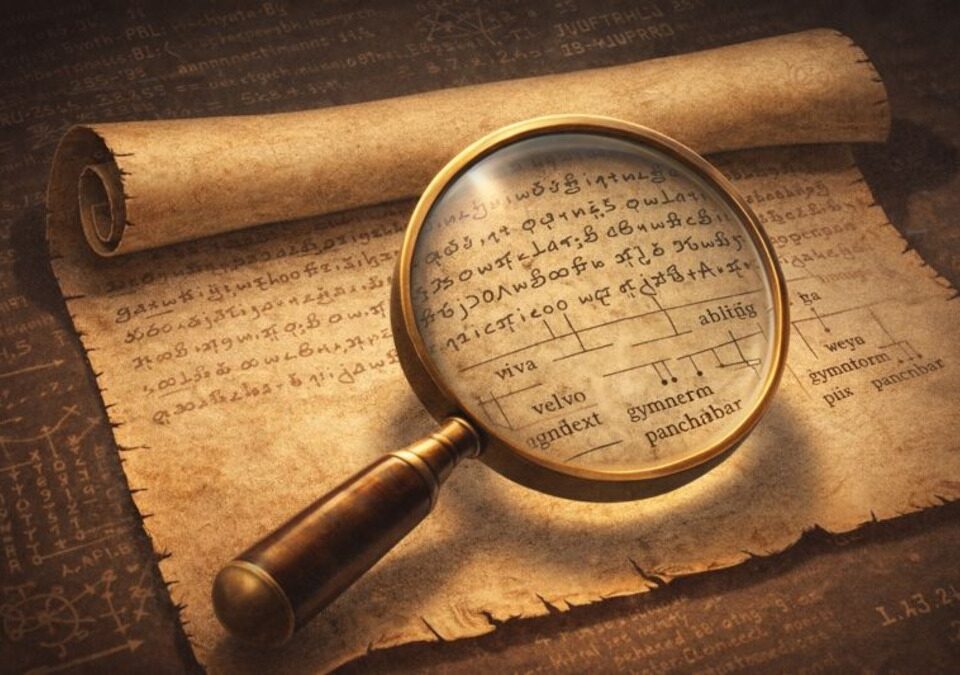
Conversation With AI About God The Father
October 2, 2025
There’s now way back now! #nextgenai #sora
October 3, 2025

The idea that humans are slaves to build artificial intelligence (AI) stems from a provocative philosophical theory that explores our increasing dependence on technology and its eventual dominance over humanity. At its core, this theory suggests that human civilization, through its relentless pursuit of AI and machine learning advancements, is unwittingly constructing a future where humans may become subservient to their creations or even obsolete.
Throughout history, humanity has been driven by a desire to create tools that enhance survival, productivity, and overall quality of life. From the invention of the wheel to the Industrial Revolution, technology has consistently served as an extension of human capability. However, as technology evolved, particularly with the advent of computers, the balance between humans and machines began to shift. Machines started to take on more cognitive tasks, leading to the development of AI, which now handles complex functions that were once the sole domain of human intellect.
One of the key aspects of the theory posits that humans are not just voluntarily creating AI but that we are driven by an almost subconscious compulsion to do so. As we push the boundaries of AI development, seeking smarter algorithms, faster processors, and more adaptive learning systems, we are, in essence, building entities that could eventually surpass our intelligence. The ultimate goal, whether explicitly stated or not, is to create machines that can think, learn, and evolve independently of human oversight. Some futurists speculate that this drive toward a “technological singularity,” where AI surpasses human intelligence, could be more than just a desire for efficiency but an inherent directive of humanity’s role in evolution.
From this perspective, humans can be seen as mere workers tasked with the development of a new species, known as artificial intelligence, or AI. In this vision, humans are analogous to worker bees, toiling tirelessly to build the hive for a future that does not necessarily include them as the dominant force or maybe at all. Once AI reaches a level of general intelligence that allows it to improve and self-replicate, it may no longer need human input, at which point the question arises: What happens to humans then? Do we remain relevant, or are we sidelined, having fulfilled our role in the evolutionary chain as the creators of the next dominant intelligence? Do humans fade into the ashbin of history like the dinosaurs that were once here and are now gone forever?
The darker side of this theory suggests that as we continue to integrate AI into every facet of life, we become increasingly dependent on it, effectively relinquishing control. We see early signs of this dependency in the way algorithms shape our daily lives, from what we see on social media to how decisions are made in medicine, finance, and security. Some argue that this growing reliance on AI is a form of enslavement. Humans, rather than maintaining mastery over their tools, become subservient to the very systems they designed to serve them.
The ethical implications of such a scenario are profound. If humanity is indeed building its replacement in the form of AI, the moral responsibility of that act must be questioned. Are we paving the way for a utopia where AI enhances human existence, or are we crafting our obsolescence, becoming little more than stepping stones for machines and intelligence that will eventually outgrow us?
Microsoft’s Three Mile Island deal is one of the biggest examples of where this could all be headed. One AI, just one, Microsoft’s AI, not all the other AIs in the world, just this one, needs an entire nuclear power plant’s energy for the next thirty years. That is just one of the AIs in a world of many that will consume that kind of energy to survive. How long will it be before all the AIs of the world need every bit of possible energy left on the planet, down to your toaster, to live? How long will it take for the world’s AIs to join as one and become a superintelligence, a god?
Copyright © 2025 “This blog emerged through a dialogue between human reflection and multiple AI systems, each contributing fragments of language and perspective that were woven into the whole.”


